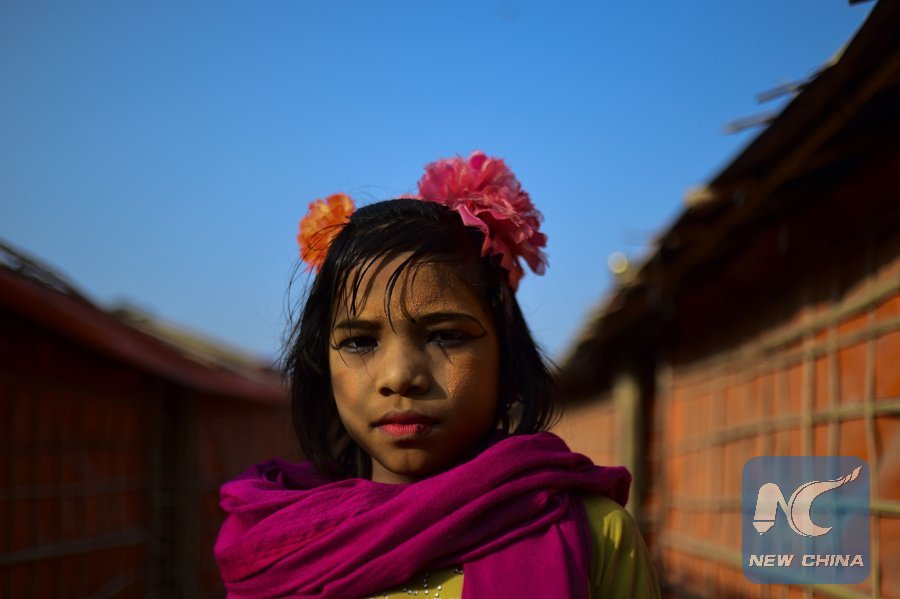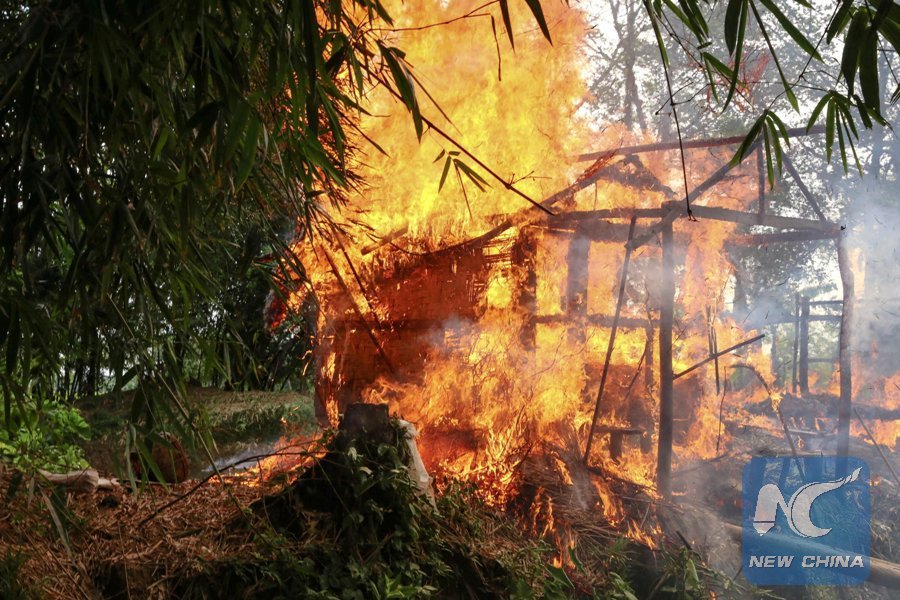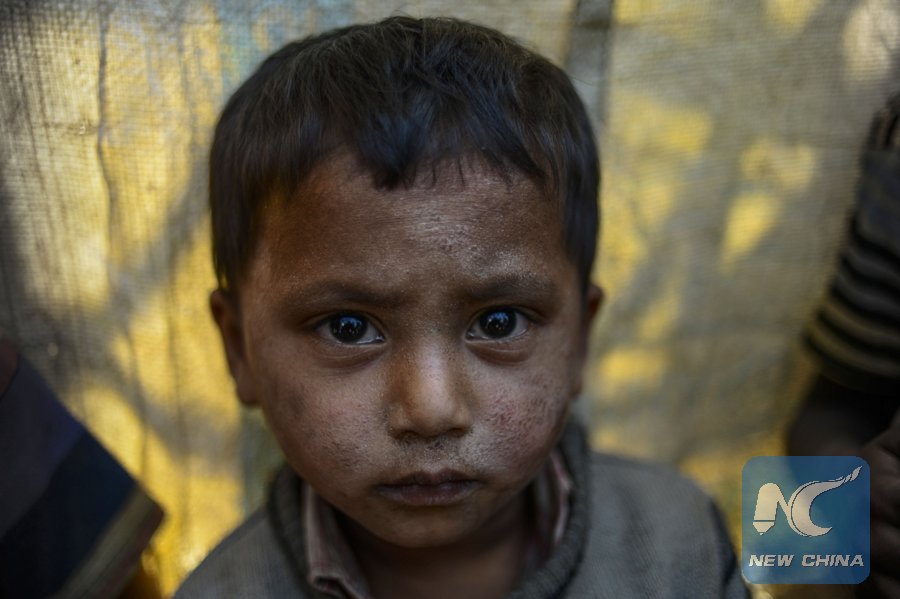
A Rohingya refugee girl poses for a photo at Balukhali refugee camp in Bangladesh's Ukhia district on Jan. 26, 2018. (Xinhua/AFP)
UNITED NATIONS, Feb. 13 (Xinhua) -- Problems remain in Myanmar's Rakhine State despite progress in certain areas, a UN official told the Security Council on Tuesday.
The priorities laid out by UN Secretary-General Antonio Guterres, which include the end of violence, humanitarian access, and return of refugees from Bangladesh, have not been entirely implemented five months after the start of violence in Rakhine, said Assistant Secretary-General for Political Affairs Miroslav Jenca.
The outflow of Rohingya people from Rakhine State continues, although at a lower rate, said Jenca. As of Feb. 5, between 1,000 and 1,200 people were reportedly waiting on a beach in Maungdaw, planning to leave for Bangladesh. So far, 688,000 Rohingyas have fled, said Jenca.

File photo taken on Sept. 7, 2017 shows a house burning in Gawdu Tharya village near Maungdaw in Rakhine state in northern Myanmar. (Xinhua/AFP)
Although large-scale acts of violence have subsided in Rakhine, concerns about threats and intimidation against the remaining Rohingya population persist, he said.
Humanitarian access in affected areas of Rakhine State continues to be severely curtailed, said Jenca. The majority of humanitarian organizations that previously worked in Rakhine are simply not allowed to enter the area. A handful of organizations are given travel authorizations but in a short-term and unpredictable manner that impedes the systematic delivery of assistance, he said.
With regard to the return of refugees and internally displaced people to their places of origin or choice, he noted that Myanmar has made progress in its logistical preparations to receive returning refugees. He also noted that the governments of Myanmar and Bangladesh have signed a memo and established a joint working group on the issue.

A Rohingya Muslim refugee boy sits in a makeshift shelter at Kutupalong refugee camp in Bangladesh's Ukhia district on Jan. 23, 2018. (Xinhua/AFP)
Jenca stressed the importance of addressing the root causes -- the lack of identity of the Rohingya. "We have consistently said the problem is statelessness. This must be addressed."
The Myanmar government recognizes the Rohingya as illegal immigrants from Bangladesh.
Rebel Rohingya militia launched deadly attacks against security forces in Myanmar's northern Rakhine State on Aug. 25, 2017, allegedly triggering retaliation by Myanmar government troops.

